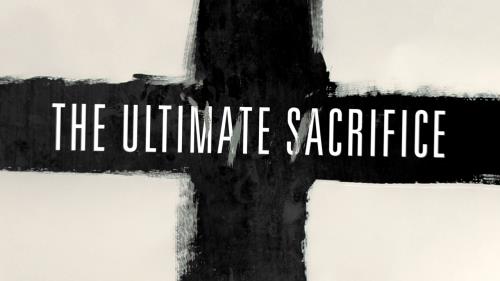-
What Is God Like - Part 2
Contributed by Tom Fuller on Nov 28, 2017 (message contributor)
Summary: Jesus reveals His true character – one which you will find at once comforting and challenging – part 2
Today we conclude a study that we began last Sunday in Matthew 11 – answering the question: "What is God like"? If you missed it, pick up the tape.
But to bring us up to speed – John the Baptist, having baptized Jesus as the Messiah, has some doubts and sends his disciples to ask the question: "Are you the Messiah, or should we look for someone else?"
John asks this, most likely, because the kind of Messiah he might have expected – someone who fell in line with his message of repentance and judgment – was not the kind of Messiah Jesus was being – all this healing and love and forgiveness stuff.
Jesus, far from criticizing John, still doesn’t answer the question directly. He tells John to look at what he’s done and draw his own conclusions.
We learn from that that
1 – It’s okay to ask honest questions
2 – Jesus doesn’t always answer us straight out
3 – We need to look at what He’s doing and
4 – We need listen carefully – by changing 1 word Jesus hinted that He is the Messiah
5 – You can’t put labels on Jesus – He won’t be put in that kind of a box (glutton/sinner)
So we come to verses 28 through 30.
You know, Jesus is the best selling author of all time, but never wrote a word.
Jesus was one of the most popular speakers of his day, but He never pushed His own self on others
Jesus led the way to our eternal salvation, by living a perfect life and then dieing in our place – yet He said very little about Himself.
What we have in these three verses are some of the only autobiographical words Jesus ever uttered – and even those are filled with love for us.
28 "Come to me, all you who are weary and burdened, and I will give you rest. 29 Take my yoke upon you and learn from me, for I am gentle and humble in heart, and you will find rest for your souls. 30 For my yoke is easy and my burden is light."
This verse actually operates on several levels. One level is a comparison of the heavy yoke placed upon the Jews by the Pharisees – characterized by the law – compared to the different kind of yoke placed upon us by Jesus, characterized by love.
But there is another more personal level.
Jesus says: No one knows the Father but the Son – then He says He wants us to know Him so He can reveal the Father to us.
Jesus says: Come. It’s in the imperative – a command, not just an invitation. He urges us who are weary and heavy laden and He promises rest.
How do we get weary? We get weary from bearing the load ourselves – of trying to hold all of the things in our lives up and make them all work together. Before coming to Christ even the burden of "what happens after this life?" and "am I good enough to go to Heaven?" weigh us down. After coming to Christ it’s the burden of "am I failing God? Am I doing what He wants?" Maybe we are just weary from life and all the attacks of the enemy.
Jesus answers those questions by saying: Come! And you’ll find rest. The word rest is interesting because it means refreshment. You know how it is to work hard outside on a hot summer day, and someone hands you an icy glass of lemonade and offers you a lawn chair in the cool of the shade. You sit down and drink up – ahh – refreshment.
Jesus offers refreshment – taking our burden of "am I good enough" and saying "no, but I am and I’m going to take your load off."
But isn’t it funny how, as Christians, we still feel the burdens – the burdens of providing for our families, the burdens of keeping relationships going, the burdens of guilt, the burden of feeling that we just don’t measure up somehow.
Jesus calls us to come to Him in that space as well. He tells us to do two things:
Take My yoke upon you
Learn of Me
I think in here are two key ideas to having a successful Christian life:
1. Take on no other burdens than the Lord lays on you
2. Focus your efforts instead on becoming like Him
Some people just seem able to ignore burdens – but for many if not most of us – we feel the weight of responsibility – whether it’s to our family, our church, our work, even our friends. I would challenge you before you say "yes" say "Lord, is this of You?" This is something I struggle with – telling someone the Lord didn’t give me permission to do this seems like a cop out. And certainly I’m not advocating that we use the Lord as an excuse not to commit, not to work hard, not to be responsible.

 Sermon Central
Sermon Central



